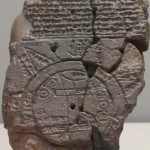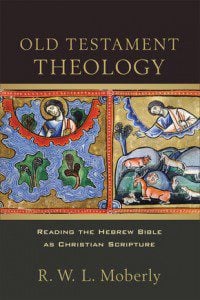 This post is by professor of theology at Vose Seminary, Michael O’Neil.
This post is by professor of theology at Vose Seminary, Michael O’Neil.
Baptists and the Bible 1
In January 2009, an international group of Baptist scholars gathered in Cardiff, U.K. to explore the theory and practice of Baptist hermeneutics; the result of their meeting was an excellent collection of essays published by Mercer University Press The “Plainly Revealed” Word of God: Baptist Hermeneutics in Theory and Practice. The essays examine how Baptists have used and interpreted Scripture, how they have understood the nature, authority and function of Scripture, and how they might navigate the troubled waters of interpretative plurality. The essays portray a tradition in which Baptist exegesis is ‘rich, complicated, conflicting and conflicted … a living, evolving, self-correcting hermeneutical tradition that creates space for both an emerging consensus and dissent to that consensus’ (25).
What distinguishes a Baptist reading of the Bible?
The mention of ‘dissent’ highlights an attribute which is perhaps typical of Baptists, and which in some contemporary Baptist circles, is under threat—although true dissenters will not likely heed such threats. The quote comes from the opening essay by Mikeal C. Parsons, who examines how early Baptists used the Book of Acts to form and articulate their identity. His chapter is a fascinating foray into the seventeenth-century Baptist mindset, exploring how typical Baptist ‘postures’ with respect to theological authority, beliefs, and the relation of church and state, introduce tension into their use of Scripture. According to Parsons, ‘early Baptists were constantly negotiating the dialectic between authority of scripture and liberty of conscience, both governed by the Lordship of Christ’ (9). Overall, Parsons finds that Baptist hermeneutics are…
a) Diverse, consisting in a variety of perspectives and interpretations grounded in polemical discourse and particular theological and social locations; that is, ‘commitment to biblical authority does not necessarily produce any kind of consistency in interpretation’ (25)
b) Ecclesiologically oriented, articulating and shaping a Baptist vision of the church, that is, a radical ecclesiology combined with an orthodox theology whether Calvinist or Arminian;
c) Hermeneutics in service of the mission and ministry of the church.
“Scriptural interpretation for early Baptists was always within the context of articulating and shaping the Church and the Church’s mission in the world. This concern runs through the middle of the twentieth century, but then something changes, especially among the ‘professional’ interpreters in North America. … Of course, what changed, at least among white male Southern Baptists in North America, was that the historical-critical method finally gained a foothold in their theological institutions and among their faculties and students. The historical-critical method rightly aimed to release the stranglehold that the Church had on the interpretation of Scripture by developing ‘objective’ methods employed by ‘objective’ interpreters—unimpeded by confessional commitments—who would produce the singular and definitive interpretation of ‘what it meant’ that both believer and agnostic could affirm” (25-26).
Parsons acknowledges that this move was ‘probably necessary’ and healthy but that it also involved certain down-sides. Interpreters lost the ability to articulate their core theological convictions and social location: rather than being explicitly or distinctively Baptist, most contemporary Baptist commentaries on Acts are ‘at most generically Protestant’ (26). Also lost was the sense of the biblical texts as irreducibly religious and multivalent, and thus interpretations which ‘might reflect to some degree the wonderful and mystical polyvalence and ambiguity of the language of scripture that continues to baffle its readers with its attempt to explain the ineffable’ (29).
Parsons’ essay distinguishes the distinctively Baptist from the generically Protestant. Is this to be celebrated or lamented? What of his claim that responsibility for this lies with professional biblical scholars using historical-critical methods of interpretation? Or is it the case that the social location of these Baptists changed so that being Baptist no longer meant what it once did?
What distinguishes, in your view, a Baptist reading of the Bible?











